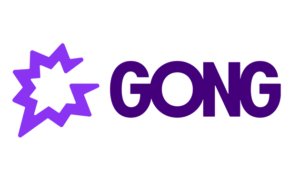Eilon Reshef, Cofounder and CPO at Gong shares a few views on the evolving salestech ecosystem and how AI will play a crucial role in driving sales ops:
__________
Welcome to this SalesTechStar chat Eilon – tell us about yourself and what inspired the start of the journey for Gong…how has the platform grown over the years to now become a market leader, we’d love to hear key highlights from the journey so far.
At the beginning of my career, I was primarily focused on development and held roles at Israel’s first NASDAQ public software company and then at an Israeli startup before starting and selling a company, Webcollage. After selling it, I took a sabbatical and decided to start Gong with my partner and now Gong CEO, Amit Bendov – who had just left his previous role at another software company.
An experience both Amit and I had in our previous companies was that if we looked at sales organizations worldwide, we knew what was happening, but it was hard to tell why. When we tried to figure out the reason, we realized that the root cause was that most of what drives deals is the communication with the customer (emails, phone conversations, video chats, text messages). Those conversations weren’t stored or analyzed so revenue teams could review them efficiently or understand how customer attitudes and concerns affect the revenue pipeline. Now widely acknowledged to be untrue, there was a conception that sellers would eventually enter all this data manually into a CRM system and that this would create true visibility.
So we launched Gong with the idea that if we could capture all of the conversations, we could make sense of them at scale and use them to elevate what teams are doing.
Over time, we’ve built a suite of revenue applications—from providing visibility to driving pipeline management and forecasts to assist sellers in their day-to-day activities, all based on the true understanding of the underlying conversations. That new way of running a revenue team gives sales and revenue leaders the opportunity to meet targeted goals and drive business success.
With every new product innovation, we aim to empower customer-facing teams to take advantage of their customer interactions. When Amit and I started Gong, we knew there would be a need for the product, but the evolution of business and technology over the years has revealed just how great the need was.
In your view, given the crowded B2B tech marketplace: what does it take to build product enhancements and product startups that can create a differentiator experience for end users while also beating the rising competition?
The first key is to understand the customer and the problems you are trying to solve for them. Unless there is a true understanding of the customer and their needs, the product will likely fail to make a significant impact.
Then, I would always suggest attempting to make as big of an impact as possible. Internally, we call this “raving fans,” and the idea is to strive to make a significant dent in how customers work. It also means working very closely with customers—initially usually a handful—and ensuring that their needs are met in the best possible way.
We believe that if companies focus too much on the competition, they tend to create features that “check the box” instead of features that drive impact with the customer, so the key is working closely with customers to find the impactful changes that can be made.
Read More: Gong Appoints Sonya Huang and Kelly Breslin Wright to Board of Directors
How do you feel AI is set to take forward the future of sales/marketing platforms: can you talk about some of the most interesting AI capabilities you’ve been following from around the world?
At Gong, we are one of the few solution providers that can take AI from a concept into a product that touches business users daily.
In the sales world, the key is that AI can now understand the intent of human communication. In the past, all you could do was plug keywords into a system in hopes of catching interesting conversations. Now, AI can be trained to understand the essential pieces – for example, if the customer is concerned with pricing.
At Gong, we’ve taken this to the next level by letting customers train our AI based on what they care about – as one customer may be interested in an environmental factor, another in competitive signals. The idea is that we’ve made it as simple to teach Gong what you care about as it is to order pizza delivery.
Finally, there’s now a new set of AI approaches that not only understand concepts but also can generate text. In its most simple form, it can summarize pieces of text – and though beneficial on its own, when combined with deep understanding, you can scan thousands of conversations — say all the conversations we’ve ever had with our largest customers. Within the conversations, users can leverage generative AI to understand the key points and compile specific summaries to relevant people, sharing information in seconds versus spending hours on meeting preparations, debriefs, handoffs and handovers.
In what ways do you feel the future of this sales tech segment will start to look like as industry trends evolve?
Covid-19 accelerated innovation by several years. Fifteen years ago, almost all B2B sales were in person. You’d take a plane and attend multiple meetings in two days to close a deal. Although B2B sales were gradually shifting to a more digital environment, the pandemic catapulted the transition to remote-based and digital virtually overnight. This digital-first model isn’t going anywhere as enterprises realize they can stay competitive and productive in remote or hybrid environments.
This new interaction model now allows the instrumentation of communication between sellers and buyers. Once you put the conversations in the hands of AI, AI can start taking away the mundane tasks of the seller. As technology evolves, tasks such as note-taking, meeting summaries, debriefs, and so on will be a thing of the past.
Similarly, coming up with sales plays based on opinion will be a thing of the past, because once you have, as an organization, visibility into all of the current sales plays, you can, using software like Gong, understand what works and what doesn’t, and guide the ship in the right direction.
Read More: SalesTechStar Interview with Steve Oriola, President and CEO of Act!
A few thoughts on the future of sales automation/sales tech before we wrap up?
In many ways, sales technologies are going through a similar transformation that marketing technologies went through in the last two decades. Whereas 20 years ago, a marketer would put up a billboard and hope for exposure, now they’re conducting numerous experiments concurrently and measuring each one. Terminology such as CPC, CTA, and so on, took over as a way to turn marketing from art to science.
In the same way, AI will continue transforming sales. Ironically, sales technology was once named Sales Force Automation (SFA), and it was aimed at automating sales chores. At some stage, vendors gave up, so they renamed the category Customer Relationship Management (CRM), which is a name for a sales database and application generator that primarily relies on sellers inputting data into it.
With the combination of capturing customer communication alongside modern AI that can understand it—anywhere from simply transcribing a video call to understanding the intent of the customer—the sales profession is being transformed. Today, less than 40% of a seller’s time is spent actually selling. With technologies like Gong, that number gradually climbs up when mundane tasks such as taking notes, updating a forecast, or even drafting emails—are mostly automated.
From a technology stack perspective, this gives rise to a new category of software—Gong leading the pack—which reimagines how many high-value workflows are being carried out in this new world. What’s the best way to manage a pipeline? How does one up level the sellers? How does one make sellers productive? And so on. This is a part of a new category of revenue applications that is based on what, at Gong, we call “reality,” which is the understanding of what truly happens in that key moment between a seller and a customer.
Read More: 4 Email Marketing Strategies to Increase Sales After a Post-Holiday Slump

Gong leverages AI and machine learning to unlock the reality of customer interactions to help people and companies reach their full potential. Gong’s autonomously empowers customer-facing teams to take advantage of their most valuable assets – customer interactions, which the Gong platform captures, analyzes, then delivers insights in real-time and at scale, enabling go-to-market teams to determine the best actions for repeatable winning outcomes. More than 3,000 innovative companies like LinkedIn, Morningstar Inc., Paychex, Shopify, Slack, Sprout Social, Twilio, and Zillow trust Gong to power their business reality. For more information, please visit www.gong.io
Eilon Reshef is Cofounder and CPO at Gong.
Missed The Latest Episode of The SalesStar Podcast? Have a quick listen here!
Episode 148: Core Sales Strategy Best Practices with Stephanie Vandenberg, GM and SVP Revenue & Growth at Verve Group
Episode 147: Driving Better Customer Revenue Journeys with Holly Procter, SVP of Global Sales at Clari
Episode 146: The Bazaarvoice Growth Story with Zarina Stanford, CMO at Bazaarvoice





















